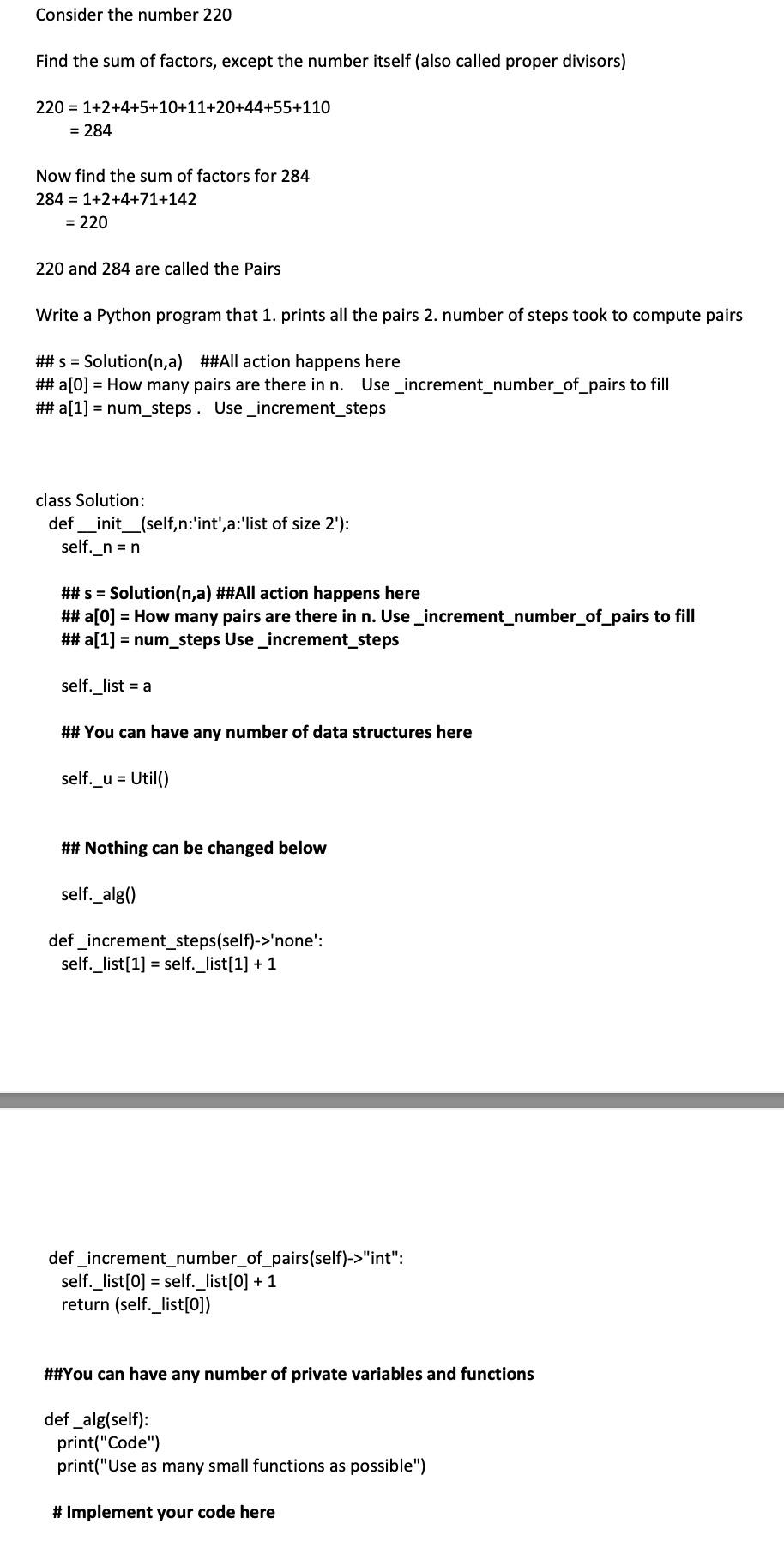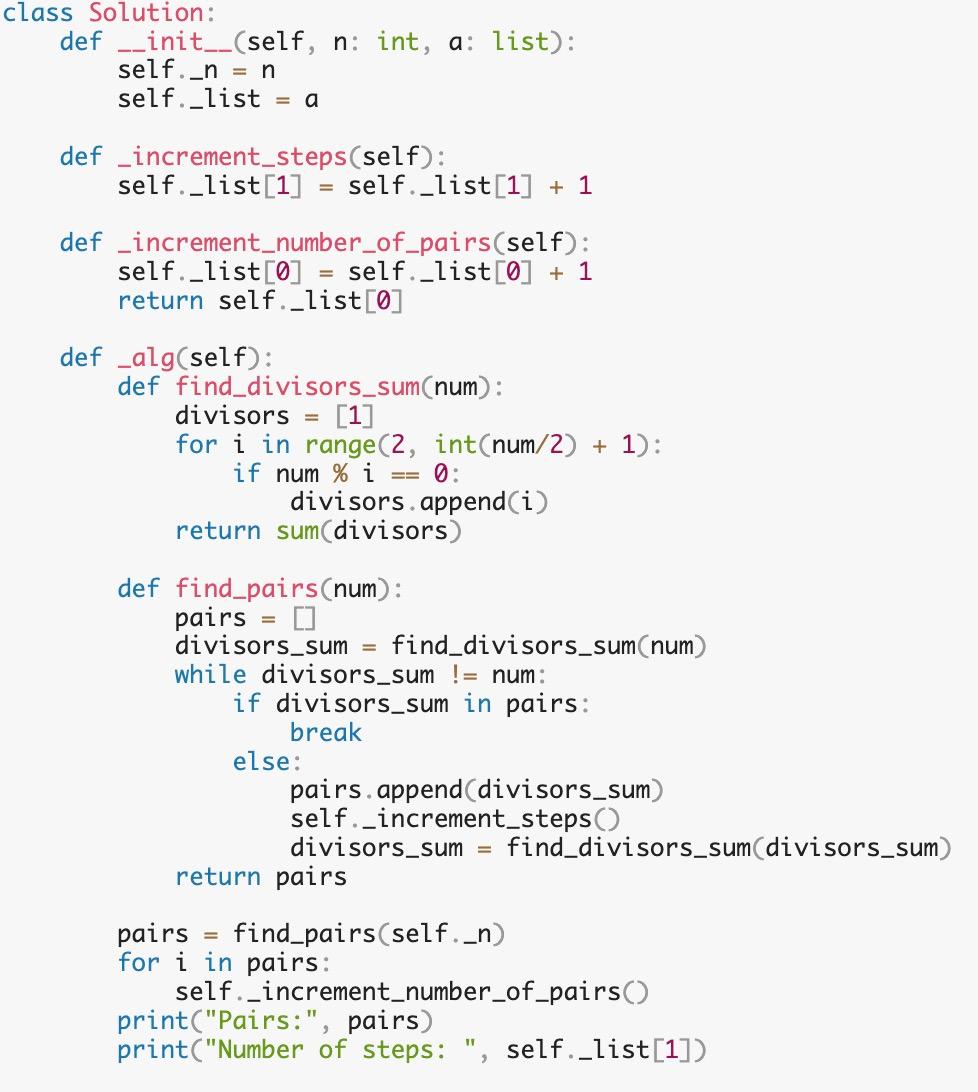Answered step by step
Verified Expert Solution
Question
1 Approved Answer
The code does not pass the test cases. When n = 10000, there should be 5 pairs, but the answer in the code gives 3.
 The code does not pass the test cases. When n = 10000, there should be 5 pairs, but the answer in the code gives 3. Can you please help to fix it? Thank you.
The code does not pass the test cases. When n = 10000, there should be 5 pairs, but the answer in the code gives 3. Can you please help to fix it? Thank you.

Step by Step Solution
There are 3 Steps involved in it
Step: 1

Get Instant Access to Expert-Tailored Solutions
See step-by-step solutions with expert insights and AI powered tools for academic success
Step: 2

Step: 3

Ace Your Homework with AI
Get the answers you need in no time with our AI-driven, step-by-step assistance
Get Started


